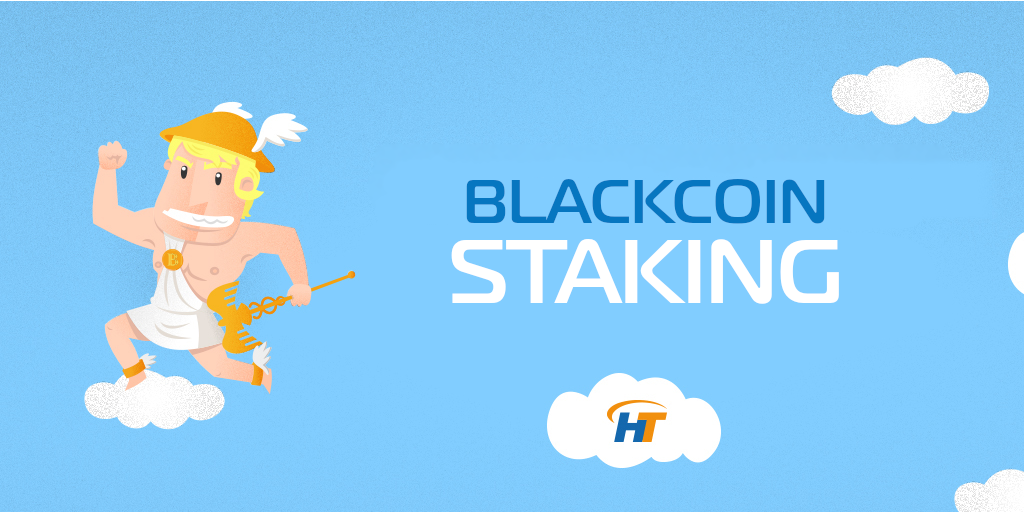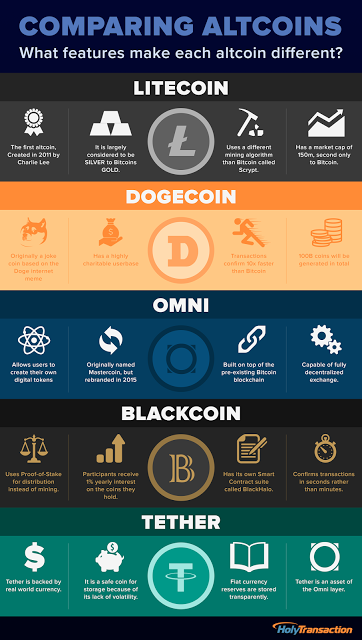

Blackcoin is a proof of stake-based coin. Blackcoin actually started out in life as a proof of work cryptocurrency but became a proof of stake coin after the 10,000th block was mined. Blackcoin claims in its whitepaper that it was the first cryptocurrency to use a pure proof-of-stake-based protocol on Bitcoin code. Blackcoin provides many of the same features as other cryptocurrencies, including decentralization and a high degree of transparency. It also offers great opportunities for passive income for staking your coins.
HolyTransaction Wallet is excited to present to you the launch of our new staking service. You can now leverage Proof of Stake (POS) holdings to safeguard crypto networks while earning financial rewards. Staking BLK has become much easier with HolyTransaction!
The process of staking is initiated by not moving your BLK for at least a period of 8 hours while keeping your node syncronized with the Blackcoin network. Your earnings are proportional to the number of coins that you have—the more coins you have, the more you earn. The amount of time you keep your wallet open for staking also has an effect on your block rewards.
Blackcoin has improved its block time from 60 to 64 seconds. Blackcoin had previously used the scrypt protocol for its hashing algorithm, but this was changed to SHA256d. Blackcoin’s reliance on proof of stake gives it an edge in performance over many proof of work cryptocurrencies. When it comes to retail applications, where transactions cannot take an hour to fully confirm as with Bitcoin, proof of stake cryptocurrencies like Blackcoin are better suited for this role.
Staking your Blackcoin will earn you a reward of between 1% and 8% of the total amount of coins held in your wallet for one year. You just need to deposit BLK in your HolyTransaction account. Wait for 24h to start staking Blackcoin and visit History -> Distributions to see your POS rewards.
Open your free digital wallet here to store your cryptocurrencies in a safe place.

Recently we at HolyTransaction created a new add-on for the Firefox browser only to see the exchange rates for cryptocurrency pairs.
Open your free digital wallet here to store your cryptocurrencies in a safe place.

Open your free digital wallet here to store your cryptocurrencies in a safe place.
Bot Commands:
/exchange
Open your free digital wallet here to store your cryptocurrencies in a safe place.
As Bitcoin’s first-mover momentum spreads the digital currency’s adoption, the “proof of work” model it uses to confirm transactions is coming under scrutiny within the crypto-community.
The proof of work algorithm rewards the individuals, called miners, who confirm blocks of transactions in exchange for an amount of the digital currency. Individual miners join pools to mine collectively as a group, increasing the computing power available to confirm Bitcoin transactions.
This model seems to benefit by encouraging a large number of participants, but it is vulnerable to what is called a 51% attack. A miner or pool that holds 51% of the total computing power could in theory control the blockchain, which is the public ledger of Bitcoin transactions. This control could enable double-spending bitcoins as well as blacklisting certain users or computing equipment. Until recently, the 51% attack was widely considered an unrealistic threat.
“The proof of work algorithm is robust and has been resilient in the face of continuous attacks for the past five years,” says Andreas Antonopoulos, a technologist and entrepreneur who is active in the Bitcoin community. But a mining pool called Ghash.io gave the community a scare when it took over 51% of the network for 12 hours on June 13.
If a pool used its control for nefarious purposes it would only hurt Bitcoin’s use and, in turn, its price. This result would hurt any miners who become attackers, since they are rewarded for their mining efforts in Bitcoin and likely hold a generous amount of the digital currency. Since the incident, Ghash control has decreased substantially, hovering now at around 35%.
“Certainly miners didn’t sign up for unfair play and they would abandon that pool,” lowering the percentage of its control, Antonopoulos says. The 51% attack “is a theoretical attack that’s narrow in scope and goes against the incentives for the miners and owners of the pool.“
Last year, Ghash said it would try to prevent itself from capturing 51% of the network power and that it would not do any damage even if it did reach this level of control. And since the power is split over the many individuals who mine in the Ghash pool, it’s unlikely the pool could reach a consensus among its members to damage the network.
Nevertheless, some in the Bitcoin community are calling for a splintering, or “fork,” in the Bitcoin blockchain, and the forked version of Bitcoin would add features that discourage pooled mining. Others are talking about the benefits of a “proof of stake” algorithm, which secures cryptocurrency networks by asking users to show ownership of a certain amount of the currency.
BlackCoin is an alternative digital currency that uses a pure proof of stake model. It was created about five months ago and has generated enough support to be integrated into CoinKite’s merchant point of sale system.
“A user chooses to ‘stake’ his coins to generate the next block in the chain, and his chance of doing so is proportional to the weight of his own coins,” says Adam Kryskow, U.S. representative for the BlackCoin Foundation.
Proof-of-stake algorithms enable faster payments. BlackCoin transactions confirm in under a minute, whereas Bitcoin transactions usually take about 10 minutes. And proof of stake is also more eco-friendly, consuming far less energy than proof of work algorithms.
 |
| Image: Peercointalk.org |
Peercoin is one of the most recognized altcoins that uses a hybrid proof of stake/proof of work model. New coins are awarded to miners who do work to authenticate transactions, but are also given to users who hold a higher stake in the system.
“The current proof of work system that is in place incentivizes centralization,” says Kryskow. “Specifically as mining payouts decrease, small mining operations will be forced to close up shop. With little to no incentive to continue mining, network power will fall dangerously low and security will be severely threatened.“
But proof of stake has its own vulnerabilities. Kryskow admits that since proof of stake algorithms are not completely decentralized, they are susceptible to a “nothing at stake” attack, where older coins could be used to fork the blockchain to create a competing one.
The proof of stake model hasn’t been stress-tested enough over a long period of time, and it worries Antonopoulos when proponents argue that the nascent mining algorithm is better than Bitcoin’s proof of work.
Bitcoin has survived a number of attacks over the years, says Antonopoulos. “There is much better monitoring and tracking [of the network]…a lot of DDoS protections and countermeasures built into the core client because of Bitcoin‘s experience with widespread attacks over the years,” he says.
Proof of stake was created in 2011 with the launch of Peercoin. “It was attacked and beaten; bugs were found, security issues were rampant and countless vulnerabilities were exposed,” Kryskow says. That’s when Peercoin moved to the hybrid proof of stake/proof of work model.
BlackCoin‘s developer argues that, like Bitcoin’s proof of work, proof of stake will be stress-tested in real-world use. BlackCoin “is a great proof of stake experiment,” Kryskow says.
Antonopoulos agrees that the development of new proof models is advantageous. “I don’t think we’ve found the perfect solution yet,” he says. “Everything comes with compromises…so you just have to identify which ones are the good compromises to make.” Other algorithms include “proof of burn,” in which a small portion of a cryptocurrency is destroyed to create value through scarcity; and “proof of resource,” which takes a resource, such as bandwidth, and assigns it a certain value for sharing.
“The real issue, though, is until we see a problem in Bitcoin that impacts the price, knowledge of Bitcoin is so much higher than [all other altcoins] that any other solution out there will be irrelevant,” says Tim Sloane, vice president of payments innovation at Mercator Advisory Group.
Sloane doesn’t expect everyone using the Bitcoin protocol to switch over to another digital currency just because there’s a threat
of disaster. But it may happen if a disaster actually strikes.
“As Bitcoin gets bigger and bigger, the problem gets bigger and bigger,” he says.
Open your free digital wallet here to store your cryptocurrencies in a safe place.

(CoinTelegraph) Blackcoin is one of the most
exciting altcoins in the cryptospace right now. It has a 30 second
confirmation time, large market cap, their BlackHalo project is keeping
it in the forefront of the Bitcoin 2.0 space and they seem to be the
only team to get altmining pools done in a responsible way that doesn’t
harm other coins.
It is also proof-of-stake based, with its proof-of-work mining period long over. While, as the team and the white paper is quick to point out,
proof-of-stake has been secure enough to prevent any serious security
breaches to its 15 – 20 million dollar market (not to mention the
markets of other proof-of-stake coins like NXTCoin, Peercoin and
Novacoin) there have been some concerns voiced by the community.
Rather than waiting to see if their coin can withstand a serious
attack when potentially hundreds of millions of dollars are on the line
(assuming Blackcoin continues to grow) the developers are taking a
proactive approach and plugging up those potential vulnerabilities now.
Proof-of-stake protocol v2 ditches the somewhat controversial Coinage
system completely. Coinage is a system that has only coins, which have
been moved into a wallet recently (after thirty days but less than
ninety days), accruing interest in the minting process. This system was
designed to encourage transactions and therefore spending. However, it
resulted in a less secure system as nodes were able to gain enough
influence over the system to perform a double spend. There was also an
issue where honest nodes would only remain on while their coins were
gaining interest. More nodes equates to a more secure network, so the
new system is designed to encourage nodes to participate at all times by
not deactivating minting on coins.
Adjustments have also been made to stop pre-computations of
proof-of-stake. Proof-of-stake pre-computations had attackers matching
or exceeding the network hashrates for short amount of times and
rewriting the blockchain to double spend coins they do not yet have.
Blackcoin’s new system addresses this by changing the stake modifier at
every modifier interval.
Blackcoin will also be switching from Scrypt to SHA256d because
Scrypt doesn’t offer any advantages in a proof-of-stake system and since
Blackcoin’s proof-of-work phase is over, it is no longer needed.
The team behind Blackcoin is dedicated, talented and apparently has a
real knack for solving problems. Steve McKie, Project Manager for the
Blackcoin Development team and representative of the Blackcoin
Foundation stated:
“With PoS Protocol V2.0, we wanted to plug any searing
vulnerabilities that may have existed in the protocols previous version
that were left over from previous attempts at PoS (Peercoin, NovaCoin).
The main developer of the protocol, Rat 4 (Pavel Vasin) has been hard at
work making sure that BlackCoin users and merchants are as protected as
possible from malicious attacks on the network”
In the same vein, Blackcoin is switching its Timestamp rules from
ones that mirrored Bitcoin’s to one that is designed to take advantage
of the proof-of-stake system. You can see the differences below:
Bitcoin
Past limit: median time of last 11 blocks
Future limit: +2 hours
Granularity: 1 second
Expected block time: 10 minutes
Blackcoin (New rules)
Past limit: time of last block
Future limit: +15 seconds
Granularity: 16 seconds
Expected block time: 64 seconds
McKie and the team have big aspirations for Blackcoin and believe
that the proof-of-stake system will prove to be more effective.
“Proof-of-stake, we believe, will be the leading protocol going forward
in regards to security and overall energy efficiency,” they said.
Open your free digital wallet here to store your cryptocurrencies in a safe place.

BlackCoin, a top 10 digital currency by market cap that secures its network entirely through proof of stake, announced today that a member of the BlackCoin development team has created a new method for eliminating risk during peer-to-peer transfers. This revolutionary protocol, called BitHalo for Bitcoin and
BlackHalo for BlackCoin, will be not only the world’s first “smart contracts” client, but also make contracts unbreakable.
Open your free digital wallet here to store your cryptocurrencies in a safe place.